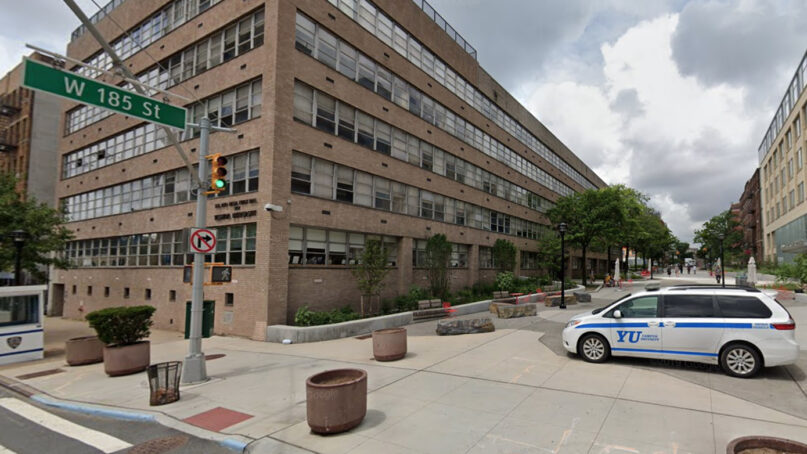Judge rules sex abuse lawsuits against Yeshiva University can proceed
New York Supreme Court Judge Alexander M. Tisch rejected Yeshiva University’s motion to dismiss two lawsuits related to the allegations, opening the way for trial.

NEW YORK (RNS) — For decades, students and their parents at a prominent Jewish high school on Manhattan’s Upper West Side have been seeking accountability from Yeshiva University, which runs the school, for allegations of sexual abuse by a former school administrator and other staff.
On Tuesday (April 2), their case received a boost from a New York state court.
In the April 2 ruling, New York Supreme Court Judge Alexander M. Tisch rejected Yeshiva University’s motion to dismiss two lawsuits related to the allegations, opening the way for trial.
More than 50 former students of the Yeshiva University High School for Boys allege they were sexually abused by the former principal, Rabbi George Finkelstein, and other staff at the prestigious high school from 1971 through 1992. They allege that more than 20 students and parents alerted the school to the abuse but that no action was taken to safeguard the students studying there.
The plaintiffs want Yeshiva University to share thousands of pages of documents in order to learn “the identity of individuals at Yeshiva University who had knowledge of sexual abuse, individuals who received reports of sexual abuse, individuals identified as perpetrators, along with names of administrators made aware of abuse, and individual school officials and administrators who failed to protect students or did not respond to abuse allegations,” a statement said.
The child sexual abuse case is one of several brought by Jews against Jewish leaders and institutions during the past couple of decades. The subject, once considered taboo, was first broached by Jewish community newspapers.
In 2000, an investigation by the New York Jewish Week alleged that Baruch Lanner, an Orthodox rabbi and educator, had physically, sexually and emotionally abused young people when he worked as the principal of Hillel Yeshiva High School in New Jersey, a Jewish school, and later as a regional director of the National Conference of Synagogue Youth.
Two years later, Lanner was sentenced to seven years in prison. An official in the Orthodox Union, NCSY’s parent organization, resigned, and the case spurred a reckoning within the wider Jewish community.
An analysis by the Jewish Telegraphic Agency found that at least 150 child sex abuse lawsuits were filed against Jewish institutions in New York from 2019 to 2021, due to the state temporarily abolishing the statute of limitations for sexual abuse claims. It was in this window that the Yeshiva lawsuits were revived, having been previously dismissed on statute of limitations grounds.
Mordechai Twersky, the original lead plaintiff who attended the high school in the early 1980s, told Religion News Service that he and the other plaintiffs, some of them with grandchildren of their own, are gratified by the judge’s ruling, but also weary. He first filed suit more than a decade ago.
“We victims, tormented and tired, with some of us quite ill, see a ray of hope in this ruling that justice will be served. The road is still long — perhaps years long — but we will prevail.”


